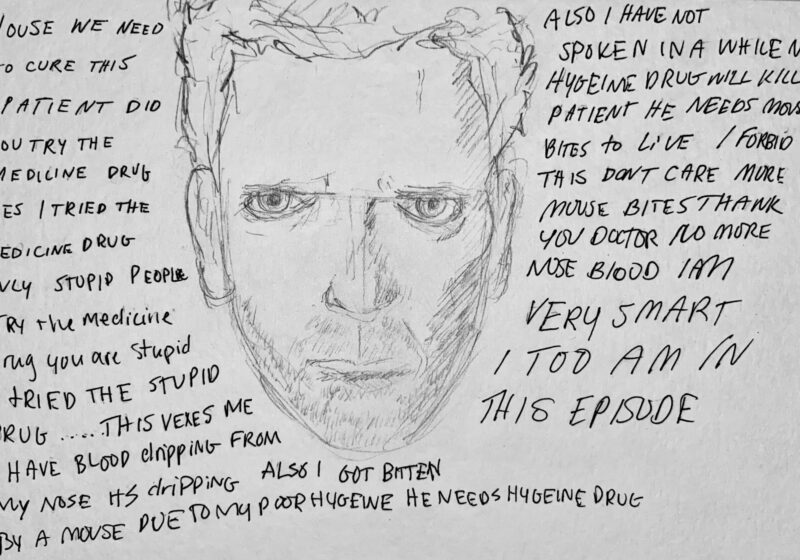The recurring theme of the preeminence of sexuality in sports was brought up yet again in the news with the University of Colorado football sex scandal. Seven women have recently come forward to assert that they had been raped by Colorado football players or recruits, in various incidents since 1997. Now the university is investigating to determine if during the sports recruiting process, unethical methods such as female escorts and trips to strip clubs were used to lure recruits. Many other such incidents have been reported at different schools, which led the NCAA president Myles Brand to initiate a task force to define “inappropriate” activities and investigate recruiting rules. The CU scandal came as a shock, but with other aspects of sports so permeated by sex, it isn’t hard to believe recruiting has been tainted as well. Attractive professional sport stars are idolized and praised for their appearance almost as much as for their skill level. Society’s placement of heavy emphasis on physical appearance as one’s self-worth affects both male and female professional athletes. There is certainly pressure on athletes to be attractive because ones who are receive more media attention and sponsorship. Professional male athletes are seen as the heroes and idols of American society. Often this leads them to think that they are better than the average citizen in addition that they should be held to lower standards. Of course, this doesn’t occur in every case, but when it does, it can create an environment where women are degraded as sexual objects and where rape and assault can happen.There is also a large concern about the sexuality of professional athletes, as homosexuals can be heavily discriminated against in sports. For example, there was a huge media upheaval last year when Mike Piazza was rumored to be homosexual. Even though it has been shown throughout sports history that sexuality or physical attractiveness doesn’t in any way affect playing ability, these are often the topics that arise in the media. Coverage on the sexuality or appearance of an athlete or sex scandals involving athletes is widespread and constant. This, of course, results from the media’s goal of appealing to audiences and increasing ratings. If the media feels that covering sexuality in sports produces higher ratings, it follows that American society is obsessed with sexual the aspects of sports. Where this obsession stems from is a little harder to identify. Certainly the extreme feminist – which I am not – would like to blame it on how the male gender places too much emphasis on certain traditional gender traits, such as strength and dominance for men versus physical appearance and weakness for women. However, the problem rests with all of American society and involves both sexes. Women can be as much to blame as men, if they allow themselves to be sex symbols in sports and female escorts for college recruits. With the idea that sex has become such an integral part of sports, the question arises – “is this an inherently bad thing?” There are two ends of the spectrum to consider here. It certainly allows attractive professional athletes to rise in popularity and gain sponsorships, but also in turn perpetuates inequality and discrimination among players who do not fit the ideal mold. In the case of some universities, it can create an atmosphere where women are viewed only as sexual objects for the athletes. While tennis player Anna Kournikova posing on the cover of Maxim seems harmless, women being sexually assaulted and raped by professional athletes is assuredly not. So then, should all aspects of sex be taken out of sports? It would be impossible to create an environment where the negative effects are severed and only the positive effects remain. So the solution to ending sexual inequality, discrimination and assault would be to dismiss the notion of sex in sports completely. Of course, this would be extremely difficult and potentially impossible to do – our society is not ready to move on from this. In order to end these rape scandals occurring at recruiting sessions, sex must be taken out of sports completely. Otherwise, college coaches and recruiters will continue to feel that they need to use sex to get the best players for their sports teams. These environments where women become sexual objects will continue to be created, and instances of sexual assault and rape will result from them. I hardly think the predominance of sexuality in sports is something that can be changed overnight, and it realistically will not happen for a long time. But until sexuality and sports are completely divorced, these cases of rape and sexual assault in professional sports are likely to continue.Keller can be reached at rkeller@campustimes.org.
calendwatch
Housepital-ity
I fear I may have started this job off on the wrong foot. Right off the bat, when I stumbled into the reception of URMC, I committed the critical silly of asking where to go.
Center for Community Engagement
Fighting against poverty in Rochester with the Urban Fellows Program
Urban Fellows, an annual program hosted by the Center for Community Engagement (CCE) and funded by Americorp, gives undergraduate students the opportunity to work with local nonprofits over the summer — and get paid for it.
LGBTQ
“Heartstopper” Season 3 is an ode to queerness and mental health
The hit queer coming-of-age show “Heartstopper” returns with its junior season — and this time it tackles heftier topics than before.





